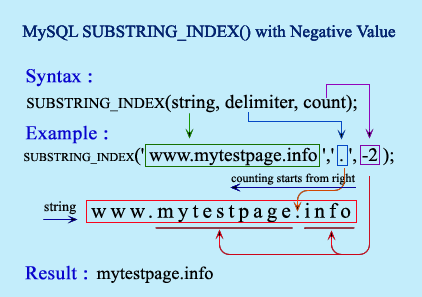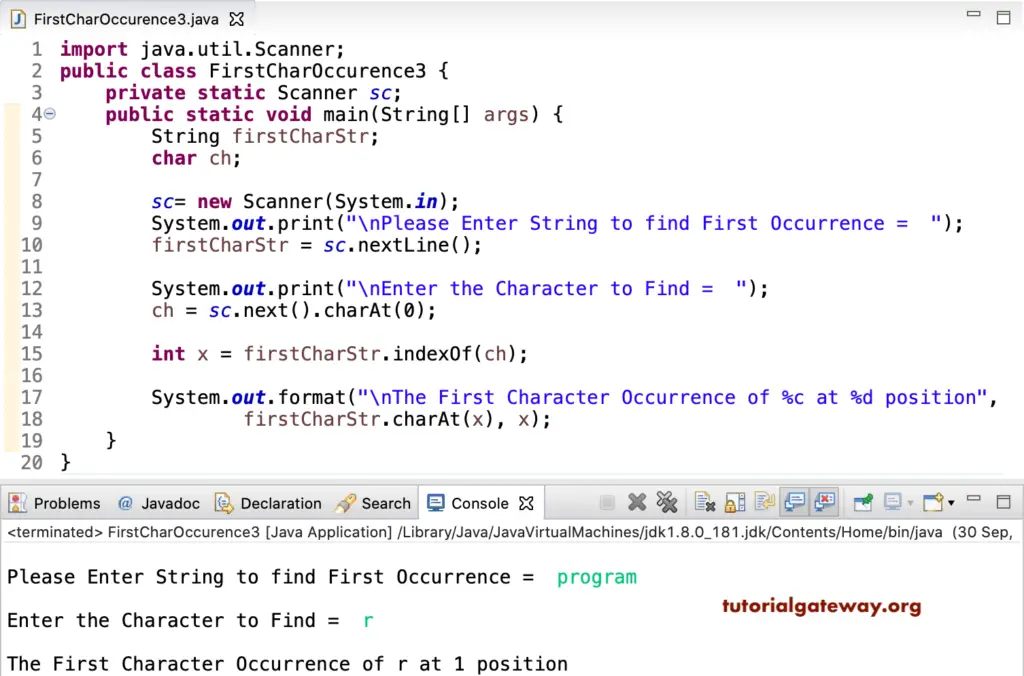

- #Php substring everything before last occurance how to#
- #Php substring everything before last occurance update#
- #Php substring everything before last occurance archive#
- #Php substring everything before last occurance code#
Is there simple and inbuilt PHP function to remove all string after last occurrence of '/' character. strstr Find the first occurrence of a string Description strstr ( string haystack, string needle, bool beforeneedle false ): stringfalse Returns part of haystack string starting from and including the first occurrence of needle to the end of haystack. * string $side determines whether text to the left or the right of the character is returned. php string function to get substring before the last occurrence of a character (10 answers) Closed 10 years ago. * string $string the string to search through. The Str::beforeLast method returns everything before the last occurrence of the given value. Use strrpos together with substr to get the substring from the first character, up to the last occurance of the / character.
#Php substring everything before last occurance update#
SUBSTITUTE function is used to replace the last occurrence of the hyphen which. Here is the query to get everything before the last occurrence of a character in MySQL mysql> update DemoTable -> set WordsREVERSE (SUBSTRING (REVERSE (Words), INSTR (REVERSE (Words),'.'))) Query OK, 1 row affected (0.
#Php substring everything before last occurance how to#
* string $character the character to search for. Laravel includes a variety of global helper PHP functions. I found how to print everything before a slash, however I need to print.

* $cwd_relative = cut_string_using_last('/', $example, 'right', false) * $cwd_relative = cut_string_using_last('/', $example, 'right', true) * $cwd_relative = cut_string_using_last('/', $example, 'left', false) * $cwd_relative = cut_string_using_last('/', $example, 'left', true)
#Php substring everything before last occurance archive#
Output: The Quick Brown Fox Jumps Over The Lazy Dog's Armos!įor the interested: I've written a function that utilises preg_match so that you're able to replace from right hand side using regex.Getting Started Introduction A simple tutorial Language Reference Basic syntax Types Variables Constants Expressions Operators Control Structures Functions Classes and Objects Namespaces Enumerations Errors Exceptions Fibers Generators Attributes References Explained Predefined Variables Predefined Exceptions Predefined Interfaces and Classes Predefined Attributes Context options and parameters Supported Protocols and Wrappers Security Introduction General considerations Installed as CGI binary Installed as an Apache module Session Security Filesystem Security Database Security Error Reporting User Submitted Data Hiding PHP Keeping Current Features HTTP authentication with PHP Cookies Sessions Dealing with XForms Handling file uploads Using remote files Connection handling Persistent Database Connections Command line usage Garbage Collection DTrace Dynamic Tracing Function Reference Affecting PHP's Behaviour Audio Formats Manipulation Authentication Services Command Line Specific Extensions Compression and Archive Extensions Cryptography Extensions Database Extensions Date and Time Related Extensions File System Related Extensions Human Language and Character Encoding Support Image Processing and Generation Mail Related Extensions Mathematical Extensions Non-Text MIME Output Process Control Extensions Other Basic Extensions Other Services Search Engine Extensions Server Specific Extensions Session Extensions Text Processing Variable and Type Related Extensions Web Services Windows Only Extensions XML Manipulation GUI Extensions Keyboard Shortcuts ? This help j Next menu item k Previous menu item g p Previous man page g n Next man page G Scroll to bottom g g Scroll to top g h Goto homepage g s Goto search
Without word boundaries: ( Demo) echo preg_replace( Example 1 Using a negative offset#Php substring everything before last occurance code#
index.js const str 'hello/world/index.html' const afterLastSlash str.split('/').pop() console.log(afterLastSlash) // index.html The code sample returns the substring after the last slash in the string.

Output: The Quick Brown Fox Jumps Over A Lazy Dog's Thermos! Use the String.pop () method to get the part of the string after the last occurrence. $subject = "The Quick Brown Fox Jumps Over The Lazy Dog's Thermos!" I am also going to use the \K metacharacter to reset the fullstring match so that no capture groups / backreferences are needed. In my snippet, I will set the pattern to be case-insensitive ( \i, although my sample input will not challenge this rule) and include word boundaries ( \b, although they were not explicitly called for). I need to remove all characters from any string before the occurrence of this inside the string: Not sure how I can do this. While using regex is typically less performant than non-regex techniques, I do appreciate the control and flexibility that it affords.


 0 kommentar(er)
0 kommentar(er)
